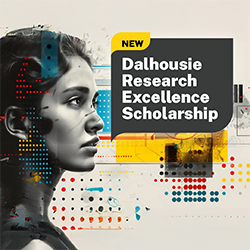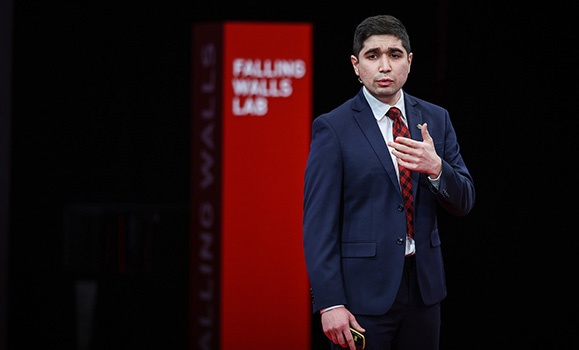This article is the final in a series profiling the inaugural Killam International Research Award recipients who traveled abroad in 2023.
What happens to the brain after a traumatic injury? It is a question Jamil Muradov is trying to solve with a little help from the Killam International Research Award.
Muradov, a PhD candidate in Dal's Department of Medical Neuroscience, was one of three recipients selected for the inaugural Killam International Research Award launched in the fall of 2022.
The award provides rich global experiences for exceptional Killam scholars by offsetting the costs of undertaking research outside of Canada for up to three months. The next call for applicants will be launched later this month on Nov. 28 at Dalhousie's Killam Annual Celebration.
The KIRA award supported Muradov to travel to Leipzig University in Germany and use the state-of-the-art microscopic techniques that allow to visualize microscopic vessels in the brain.

A new doctoral scholarship program at Dalhousie expands PhD opportunities and research impact. Learn more.
Muradov’s research focuses on identifying unusual brain patterns that emerge following traumatic brain injury. Once identified, these injuries are targeted pharmacologically to prevent long-term complications.
By using 2-photon microscopy techniques while in Leipzig, he studied how vessels undergo a cycle of contraction and relaxation in conditions associated with brain injury.
This research may lead to novel methods of brain activity and MRI data analysis that could inform individualized approach to concussion treatment and help to develop better treatment strategies.
Building connections and collaboration
As part of the KIRA funded work, Muradov visited the leading institutes that were founded by individuals considered monumental in the history of sciences, including Albert Einstein, Max Planck, Hermann von Helmholtz, Alexander von Humboldt, and many more.
At Leipzig University, he was able to give a departmental seminar on his research at Dalhousie. While there, he collaborated with Dr. Karl Schocknecht, leading researcher of neurovascular health, and worked under supervision of Dr. Jenz Eilers at Karl-Ludwig Institute.
Muradov hopes his research will soon lead to the approval of novel drugs for better treatment of concussion complications in Canada and beyond.
“Post-traumatic sequalae, including epilepsy, mood disorders and cognitive decline, constitute a major burden for the healthcare systems in the developed countries. Unfortunately, even less treatment options are available to patients in low-income parts of the world,” says Muradov.
We are hoping to advance our research from the pre-clinical setting into human-patient trials that could benefit Canadians living with brain injury
Muradov’s goal is to use a commonly accessible, cheap and safe drug, called memantine. This drug is used to treat Alzheimer’s disease all over the world. To support treatment of traumatic brain injuries, they would repurpose it for the prevention of concussion complications.
“We are working on a systematic review of the feasibility of use of this drug in treatment of concussion. We are hoping to advance our research from the pre-clinical setting into human-patient trials that could benefit Canadians living with brain injury and many more beyond,” states Muradov.
Muradov was one of two graduate students to represent Dalhousie at the 2023 Falling Walls Global Summit in Berlin after he won the Atlantic Canada pitch competition.
“It was inspiring to meet the brightest minds and leading experts and to share my research on a global stage."

